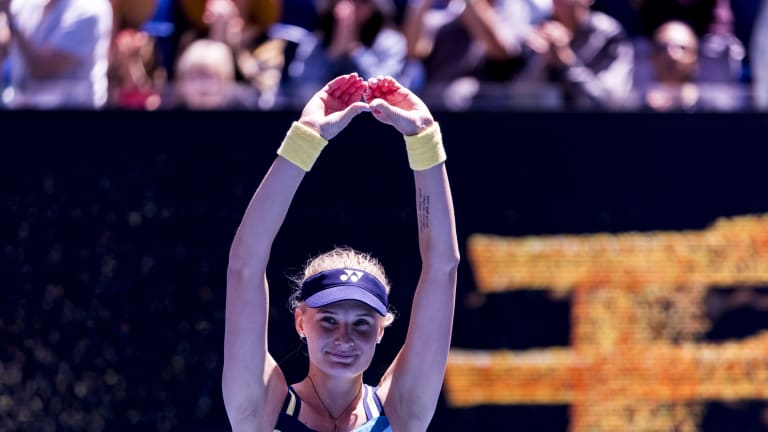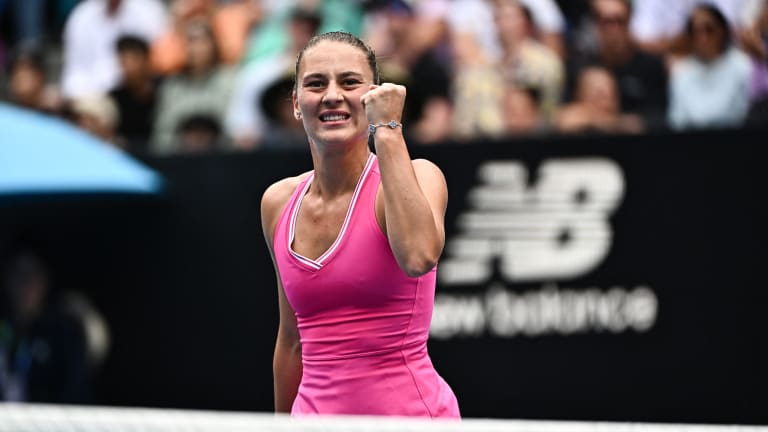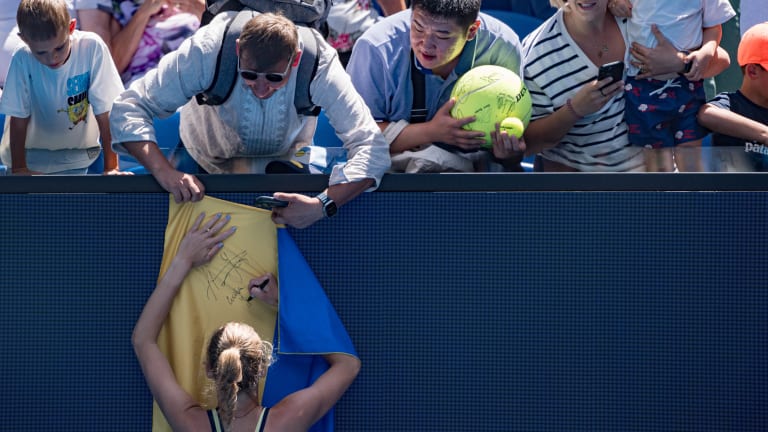They Said What?
Dayana Yastremska's racquet is doing the talking at the Australian Open
By Jan 22, 2024They Said What?
'Big Brother' is watching ... tennis: Many eyes, in many ways, are on the sport in 2025
By Feb 13, 2025They Said What?
“There’s nothing wrong with not being Novak”: Sloane Stephens gets candid on Tennis Insider Club podcast
By Oct 21, 2024They Said What?
"New Heights" with Stefanos Tsitsipas
By May 15, 2024They Said What?
A Class Act, Easily Ignored: Kudos to Ons Jabeur
By May 06, 2024They Said What?
Luca Nardi defeats Novak Djokovic: Teachable moments from a stunning upset
By Mar 12, 2024They Said What?
Are we witnessing a new Daniil Medvedev?
By Jan 25, 2024They Said What?
Deciding when to retire is a unique case for tennis players. Just ask Andy Murray
By Jan 18, 2024They Said What?
Roger Federer may not be tennis' GOAT, but as Rafael Nadal articulated, he's a 1 of 1
By Jan 06, 2024They Said What?
The lingering debate on tennis balls used at ATP and WTA tournaments is a ball of confusion
By Oct 08, 2023Dayana Yastremska's racquet is doing the talking at the Australian Open
It's been a historic fortnight in Melbourne for Ukrainian tennis, but it's come as the war in their homeland continues to rage on.
Published Jan 22, 2024
Advertising

Once the world No. 21, Yastremska has knocked off three seeds at this tournament, including Wimbledon champion Marketa Vondrousova and former No. 1 Azarenka.
© Icon Sportswire via Getty Images
Advertising

Kostyuk made the third round of the Australian Open in 2018 at age 15 in her WTA main-draw debut.
© AFP or licensors
Advertising

For the first time in the Open Era, two Ukrainian women are through to the quarterfinals in Melbourne.
© © Andy Cheung / ArcK Images / Getty Images